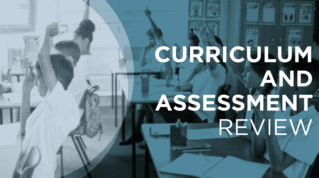The Labour Party manifesto included a commitment to embed speaking skills into the curriculum. A focus on speech, language and communication is welcome, but to make a success of it we need to consider how to ensure it is fully inclusive.
While oracy is often presented as a way of encouraging social mobility, there is a concern that if oracy is implemented in the wrong way, it could become yet another way to exclude some children.
We are talking about an issue which affects a large group of children in the school population. Last year, teachers identified nearly 2 million children who they felt were behind with their talking and understanding of words. This includes children of all ages, not just those in the early years.
Many will struggle with an oracy approach which doesn’t consider their need for support with the speech, language and communication skills that underpin their ability to express themselves and achieve the ‘linguistic judgement’ that Dr Knight highlighted recently in Schools Week.
Some children’s needs can be met by teaching and learning approaches which support the development of communication skills. Others will need more adapted approaches including interventions and, in some cases, specialist support. All will benefit from teaching staff who understand how communication skills develop and what strategies support children’s speech, language and communication skills throughout their time in school.
The latest figures from the Department for Education show that 18.4 per cent of children and young people in England have special educational needs (SEN). The most common type of need overall is speech, language and communication needs. Indeed this was the primary need for almost 370,000 children in 2023/24.
Within this group, many have developmental language disorder (DLD). This is a condition which affects approximately 7.6 per cent of children, and yet many people have never heard of it.
This group of children have lifelong difficulties with understanding and using language. Often, these difficulties are overlooked or mis-diagnosed with subsequent impact on children’s potential for achievement as well as their behaviour and mental health.
How can oracy celebrate differences in communication?
Children with many of the other categories of need may also communicate differently or require some additional support, such as autistic or deaf children and those with learning disabilities.
There are also children with communication differences who are unlikely to be considered as having a special educational need, for example those who stammer. According to Action for Stammering Children, around 8 per cent of all children stammer at some point in their childhood.
If we define oracy as prioritising spoken language skills over other forms of communication which children and young people use to articulate ideas, develop understanding and engage with others, then we are excluding children who communicate differently from the start.
For example, while the majority of deaf children access education through spoken language, some access the curriculum through British Sign Language (BSL). For those children, BSL is their first or preferred language through which to express their ideas. Many deaf children are multilingual and bimodal, moving across languages and modes with great skill.
Autistic children provide another example where there is a wide range of communication differences. While many autistic children and young people communicate effectively through spoken language, others are non-speaking or semi-speaking. These children and young people may communicate through written language or using alternative and augmentative communication (AAC) devices.
Neurodivergent children and young people may also have different communication and interaction styles. So how can oracy education affirm and celebrate these differences in communication?
There is a risk that a non-inclusive approach to oracy education could result in unintended harm to these same children and young people. Mainstream schools can already be a difficult environment, as evidenced by rising levels of non-attendance. Oracy should not be implemented in such a way that it makes school even more anxiety-inducing for children with speech and language challenges.
Oracy education of the future must support all children and young people by celebrating and promoting all forms of communication. To do this, is should encourage children to express ideas and engage with others in whatever way works best for them.
Ensuring it does so by design will require bold thinking.
This article is the fourth instalment in a Schools Week serialisation of essays offering perspectives on the remit of the Commission on the Future of Oracy Education in England
















Your thoughts